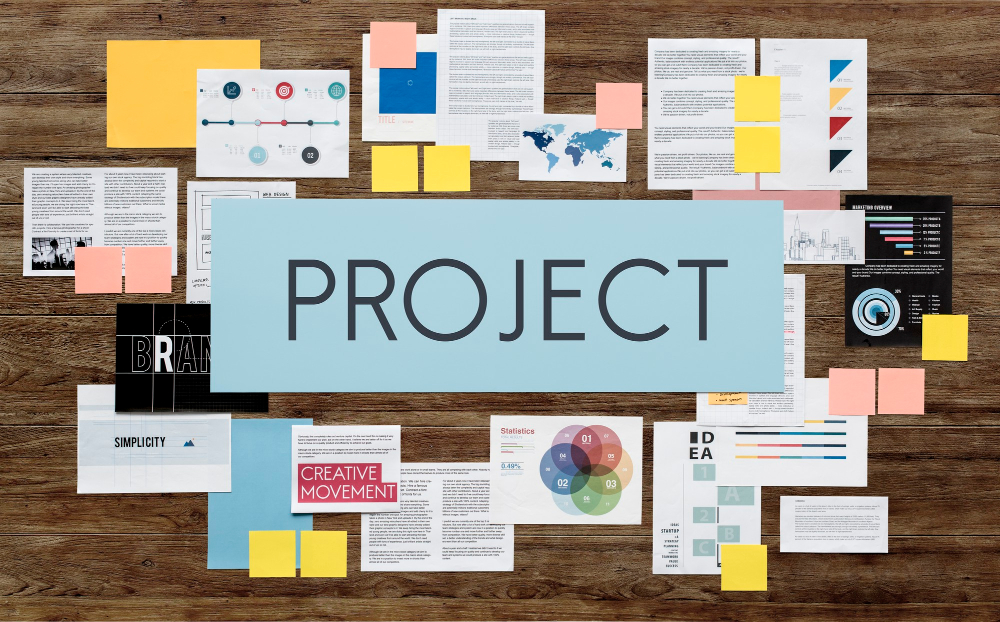White Label Project Management Tool: Streamline Operations and Enhance Collaboration

If you are managing a business or a team, staying organized and efficient is key. A white label project management tool can simplify workflows, improve collaboration, and centralize operations—all under your brand. Many organizations, agencies, and solopreneurs are choosing white label solutions because they provide a customizable platform that can be tailored to a company’s unique needs while maintaining branding consistency.
What is a White Label Project Management Tool?
A white label project management tool is a software solution that businesses can rebrand as their own. Unlike standard tools, white label solutions allow companies to apply their logo, color scheme, and domain name while accessing a full-featured project management system.
Key features typically include:
- Task and Workflow Management: Plan and assign tasks efficiently.
- Team Collaboration: Real-time communication and file sharing.
- Client Management: Track projects for individual clients in a centralized dashboard.
- Reporting and Analytics: Gain insights into team performance and project progress.
This approach allows businesses to maintain a professional and cohesive brand identity while benefiting from advanced software functionality.
Core Features of White Label Project Management Tools
- Task Management and Workflow Automation
A primary function of any project management tool is task tracking. Users can:
- Create tasks, subtasks, and milestones.
- Assign responsibilities to team members.
- Set deadlines and priority levels.
Automation features help reduce repetitive work by:
- Sending reminders for approaching deadlines.
- Automatically moving tasks to the next stage in the workflow.
- Triggering notifications for task updates.
Workflow automation ensures projects stay on track and teams remain productive.
- Team Collaboration and Communication
Effective communication is vital for project success. White label project management tools often include:
- Chat channels for team discussions.
- Comment threads attached to specific tasks.
- File sharing capabilities for documents, images, and spreadsheets.
- Integration with email or messaging apps.
These features reduce the reliance on multiple platforms, keeping all project-related communication in one centralized place.
- Client and Stakeholder Management
Many businesses need to manage client projects efficiently. White label tools allow:
- Custom dashboards for client access.
- Task visibility settings to share only relevant updates.
- Project timelines and status reports for transparency.
By providing clients with access under your branding, businesses maintain a professional appearance and build trust while keeping sensitive information secure.
- Reporting and Analytics
Data-driven decisions are essential for optimizing operations. White label project management tools include analytics features such as:
- Project progress reports.
- Team performance metrics.
- Resource allocation insights.
- Financial tracking for project budgets.
These reports help managers identify bottlenecks, track deadlines, and allocate resources effectively.
- Integrations with Other Tools
Many white label platforms support integrations with popular tools such as:
- Accounting and finance software.
- CRM platforms for client management.
- HR and payroll systems.
- Communication tools like Slack or Microsoft Teams.
This allows businesses to streamline their entire workflow without switching between multiple applications.
Advantages of Using a White Label Solution
Brand Consistency
Your clients see your branding throughout the platform, enhancing credibility and reinforcing your professional image.
Flexibility and Customization
Customizable dashboards, color schemes, and logos make it easier to adapt the software to your company’s workflow and visual identity.
Cost-Effectiveness
Instead of developing a proprietary solution from scratch, businesses can use a white label tool to save on software development costs while getting a ready-made solution.
Scalability
White label project management tools grow with your business, supporting additional users, projects, or advanced features as needed.
Use Cases for White Label Project Management Tools
1. Agencies and Consultancies
Agencies managing multiple client projects benefit from a centralized platform that organizes tasks, deadlines, and resources. A white label solution ensures clients see only the agency’s brand while tracking project updates seamlessly.
2. Solopreneurs and Freelancers
Even individual professionals can manage their work more efficiently. These tools provide a single platform to handle client projects, track progress, and deliver professional reports.
3. Construction Teams
Construction projects involve multiple stakeholders, deadlines, and dependencies. White label project management software can manage tasks, monitor timelines, and maintain document control, ensuring projects stay on schedule and budget.
Choosing the Right White Label Project Management Tool
When selecting a white label tool, consider the following factors:
- Custom Branding: Ensure the platform allows logo placement, color customization, and domain integration.
- Ease of Use: A user-friendly interface reduces the learning curve for your team and clients.
- Feature Set: Look for task management, collaboration, reporting, and integration capabilities that match your business needs.
- Security and Compliance: Protect sensitive client and project data with robust security protocols.
- Support and Updates: Choose a provider that offers reliable support and regular software updates.
Implementation and Best Practices
Implementing a white label project management tool successfully requires planning:
- Define Workflow Processes: Map out your existing workflows and identify how tasks, approvals, and reporting will function within the software.
- Train Your Team: Provide training sessions to ensure everyone understands how to use the platform efficiently.
- Customize Branding: Set up logos, colors, and domain to match your business identity.
- Integrate Existing Tools: Connect finance, HR, or CRM systems for a seamless workflow.
- Monitor Usage and Feedback: Track adoption rates, gather team feedback, and adjust settings to optimize productivity.
Benefits of Consolidated Operations
Using a white label project management tool consolidates multiple aspects of business management into a single platform:
- Project Planning: Organize timelines, milestones, and deliverables.
- Team Coordination: Assign responsibilities and monitor performance.
- Client Communication: Share updates and reports under your branding.
- Financial Oversight: Track project budgets, expenses, and resource allocation.
- HR and Payroll Integration: Manage hiring, payroll, and employee performance seamlessly.
A unified platform reduces the need for multiple disconnected applications and minimizes data silos.
White Label vs. Traditional Project Management Tools
| Feature | White Label Tool | Traditional Tool |
| Branding | Fully customizable | Limited branding |
| Client Access | Branded dashboards | Often generic access |
| Custom Domain | Yes | Rarely available |
| Integration | Multiple modules included | May need third-party apps |
| Support | Dedicated provider | Standard support |
White label tools offer a significant advantage for businesses looking to maintain professional identity and streamline operations.
Conclusion
A white label project management tool is more than just software—it is a complete business solution that centralizes workflows, simplifies collaboration, and strengthens client engagement under your brand. By consolidating tasks, communication, reporting, and integrations into a single platform, businesses of all sizes—from solopreneurs to agencies and construction teams—can operate more efficiently.
Choosing the right white label solution ensures your business remains professional, organized, and scalable. Platforms like Projeni provide a modular, customizable system that adapts to your workflow while maintaining full branding control.




